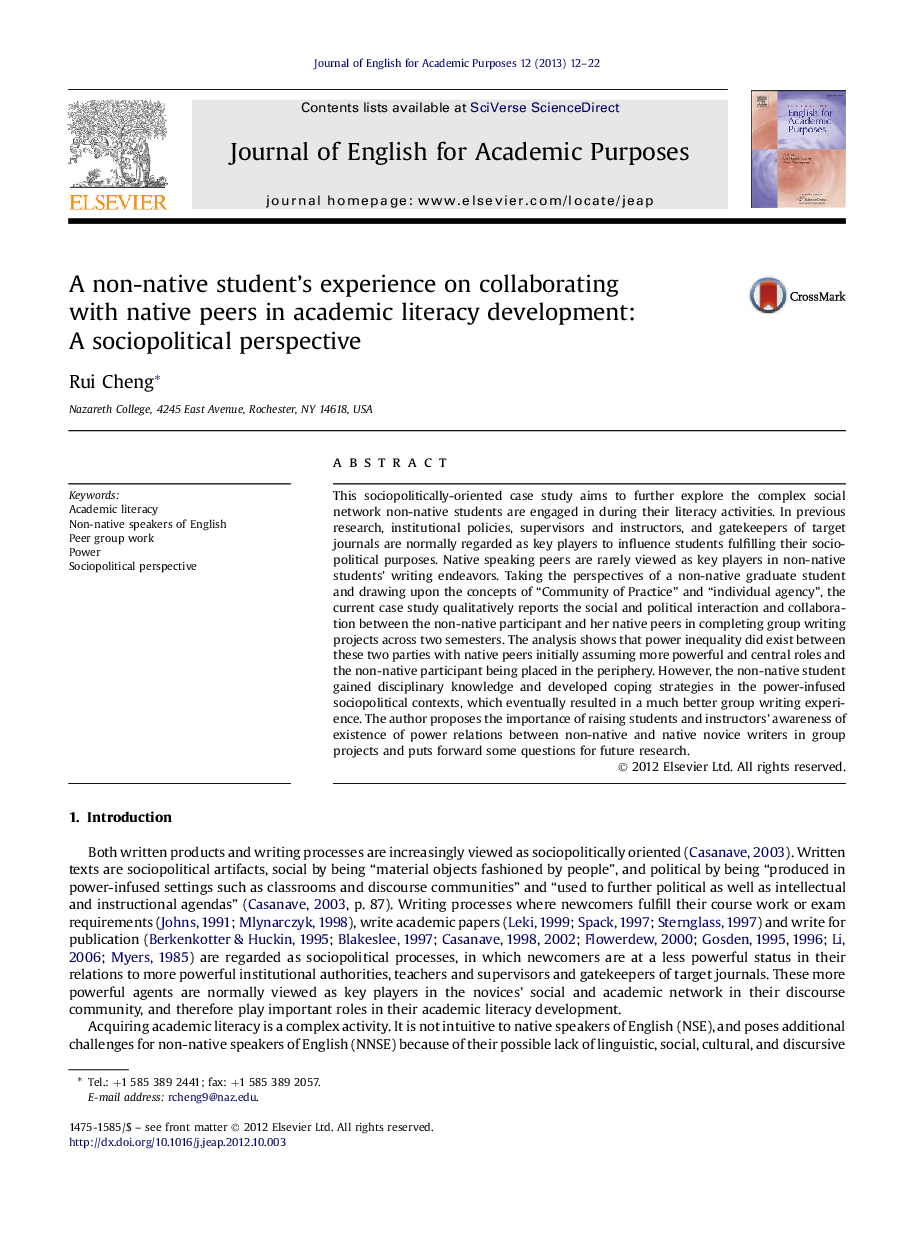| Article ID | Journal | Published Year | Pages | File Type |
|---|---|---|---|---|
| 360270 | Journal of English for Academic Purposes | 2013 | 11 Pages |
This sociopolitically-oriented case study aims to further explore the complex social network non-native students are engaged in during their literacy activities. In previous research, institutional policies, supervisors and instructors, and gatekeepers of target journals are normally regarded as key players to influence students fulfilling their sociopolitical purposes. Native speaking peers are rarely viewed as key players in non-native students' writing endeavors. Taking the perspectives of a non-native graduate student and drawing upon the concepts of “Community of Practice” and “individual agency”, the current case study qualitatively reports the social and political interaction and collaboration between the non-native participant and her native peers in completing group writing projects across two semesters. The analysis shows that power inequality did exist between these two parties with native peers initially assuming more powerful and central roles and the non-native participant being placed in the periphery. However, the non-native student gained disciplinary knowledge and developed coping strategies in the power-infused sociopolitical contexts, which eventually resulted in a much better group writing experience. The author proposes the importance of raising students and instructors' awareness of existence of power relations between non-native and native novice writers in group projects and puts forward some questions for future research.
► Changes of power relations between a non-native student and her native peers are examined. ► The non-native student tended to be marginalized by her native peers in the co-authoring process. ► Development of academic literacy, agency and coping strategies reduce power distance.
